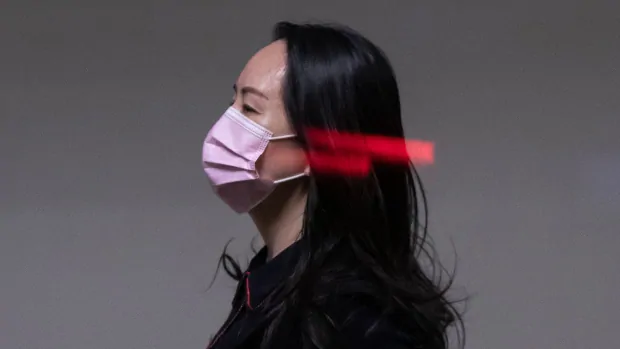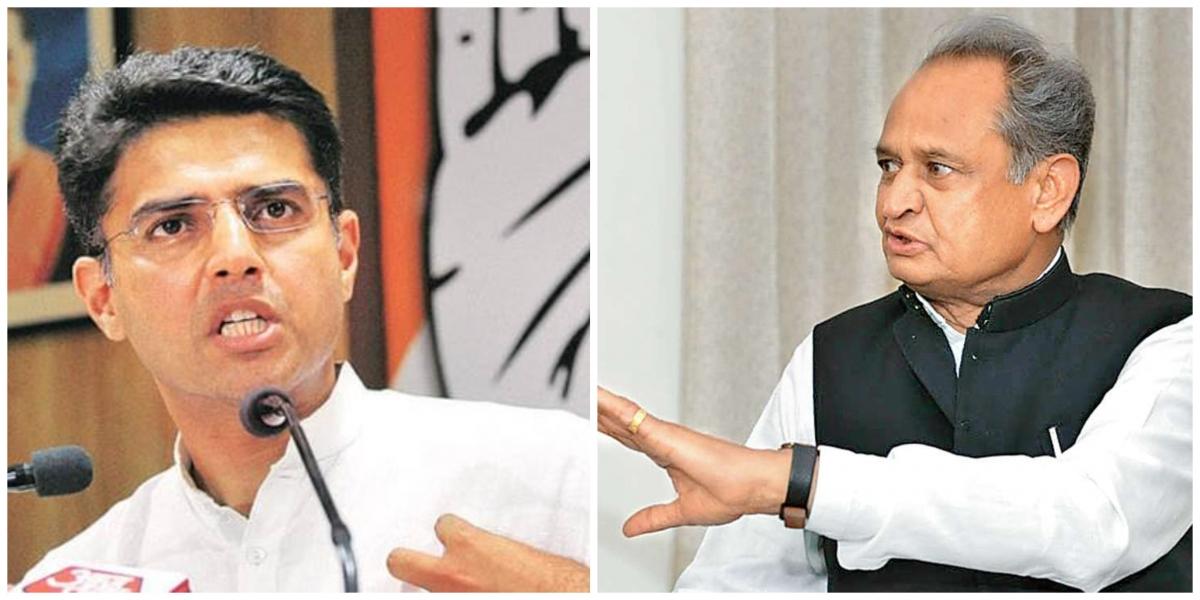A supervisor who oversaw Canada Border Services Agency officers at Vancouver’s airport on the day Meng Wanzhou was arrested will resume testimony at the Huawei executive’s extradition proceedings this morning in B.C. Supreme Court.
But Supt. Bryce McRae will take the stand in a world that has changed in at least one fundamental way in the past two weeks: the country seeking to extradite Meng has elected a new president.
Observers are anxious to see what U.S. president-elect Joe Biden might mean for a case in which the actions of current President Donald Trump have featured so prominently.
Paul Evans, a professor in the University of British Columbia’s school of public policy and global affairs, said there is little doubt Biden will “continue the concept of China as a rival and a strategic competitor.”
But he believes the incoming administration may take a less confrontational approach — while also being more willing to consider the interests of an ally like Canada in dealing with China’s anger over Meng’s arrest.
“If the Biden administration decides to play a little bit more nuanced game in competing with China instead of confronting it, they may take the foot off the gas in their prosecution of Meng,” Evans said.
Fraud and conspiracy
McRae is one of 10 CBSA and RCMP officers expected to testify in the coming weeks about the events leading up to and immediately following Meng’s arrest on Dec. 1, 2018.
The testimony began at the end of October and paused for two weeks. It’s expected to continue into the first week of December.
Meng’s lawyers hope to gather evidence from the officers to use at a hearing in February where they will argue that Canadian and U.S. authorities conspired to have the CBSA question Meng without a lawyer before the RCMP officially arrested the 48-year-old.
Meng, who is Huawei’s chief financial officer, is charged with fraud and conspiracy for allegedly lying to an HSBC executive about Huawei’s control of a subsidiary accused of violating U.S. economic sanctions against Iran.
Prosecutors claim that by relying on Meng’s alleged lies to continue a financial relationship with the telecommunications giant, HSBC was placed at risk of loss and prosecution for violating the same set of sanctions.
Codes passed ‘by mistake’
CBSA officers intercepted Meng on the jetway as she emerged off a flight from Hong Kong on what was supposed to be a stopover on her way to Latin America. They questioned her for three hours and seized her electronic devices.
The CBSA officer who took Meng’s two phones also asked her for the passcode that unlocked both. In testimony, he claimed to have later passed the code to RCMP by mistake.

The defence claims that the actions taken by the RCMP and CBSA violated Meng’s rights to have a lawyer and to be informed of the reason she was being detained. They also believe the RCMP later passed technical information about Meng’s devices to the U.S. Federal Bureau of Investigation in contravention of the laws governing extradition.
Witnesses in previous testimony said the RCMP respected the CBSA’s jurisdiction over the airport, and that the CBSA officers then acted on their own intelligence to carry out a mandate that required them to assess Meng’s admissibility to Canada.
One CBSA officer said that he had concerns about any delay in Meng’s arrest being viewed as a breach of her charter rights. But he denied the defence’s suggestions that something more nefarious was at play.
The fate of the ‘two Michaels’
Meng’s extradition proceedings are expected to extend well into 2021, with the first major hearing coming in February when the defence has a chance to present arguments about the arrest and two other allegations of abuse of process: politicization of the case and a claim that the U.S. deliberately misled Canada about the strength of the allegations.
No matter who occupies the White House, Trump’s actions will be front and centre in the proceedings because the defence plans to argue that he suggested using Meng as a bargaining chip to get a better deal in a trade war with China.

In court documents, the defence has also cited statements from Prime Minister Justin Trudeau calling on the U.S. to ensure that any trade deal addresses the questions of Meng and the two Canadians who were detained by China within days of her arrest.
Former diplomat Michael Kovrig and entrepreneur Michael Spavor have been held in Chinese custody for nearly two years and have been charged with spying. Trudeau’s government has denounced their arrests and — despite Chinese denials — most observers believe Kovrig and Spavor were taken in direct retaliation for Meng.
Trudeau was the first world leader to congratulate Biden on his win and in a social media message following their conversation, he said they talked about working on specific challenges, including “China’s arbitrary detention of Michael Kovrig and Michael Spavor.”
‘Adversary, rival, competitor and partner’
Lynette Ong, professor of political science at the University of Toronto, said she doesn’t expect a change in administration to alter the way Washington views China. But she does think a Biden presidency might be more receptive to Ottawa’s needs.
“I think the overall overarching orientation of foreign policy to China wouldn’t change, so I wouldn’t expect them to withdraw the extradition request or to drop the case,” Ong said.
“But Biden being Biden and not Trump, we are more likely to see assistance coming from them, because I think as an ally, the U.S. is supposed to help its allies. That sort of quid pro quo should continue — which was not forthcoming at all in Trump’s administration.”
Evans said that while Meng was arrested under the Trump administration, the investigation that resulted in the charges against her began under the presidency of Biden’s old boss, former U.S. president Barack Obama.
Evans recently wrote about the deterioration of Canada’s relationship with China in the East Asia Forum, calling on Ottawa to figure out a way to deal with China as an “adversary, rival, competitor and partner.”
“One of the critical issues is going to be if the two Michaels issue and the Meng issue continue to be discussed separately. They are inextricably linked in reality, even if the fiction is that there’s two separate routes to solutions,” Evans told CBC.
“We can start looking carefully at whether that linkage is being made in the Biden administration — the people coming in. Because the Trump people and Mr. Trudeau and our government were playing them as if they were different matters.”

Devoted web advocate. Bacon scholar. Internet lover. Passionate twitteraholic. Unable to type with boxing gloves on. Lifelong beer fanatic.





